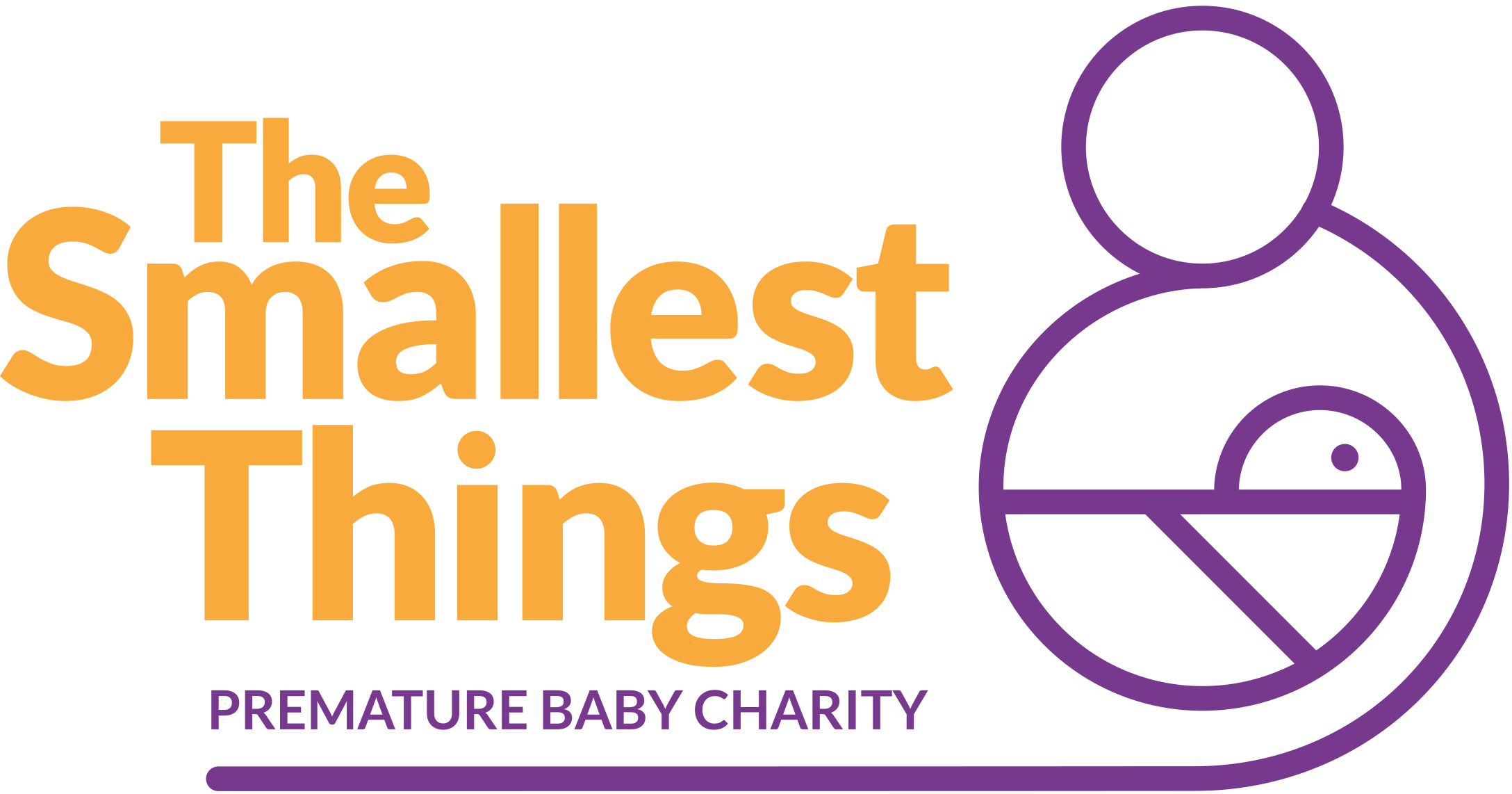World Prematurity Month 2022: Mini Max and global development delay
Mum Lynne with Mini Max, aged two months
In October 2018 Max was born suddenly at 24+5 weeks, gate-crashing his big brother Oliver’s third birthday. His chance of survival had initially been so poor that we scarcely allowed ourselves to believe we might get through the next 24 hours, let alone beyond them.
But Mini Max (as the nurses nicknamed him) defied all odds and, once the initial shock had subsided, we slowly got to grips with the reality of the NICU rollercoaster. We were in for the long haul: a bumpy road lay ahead that would push me to my absolute mental and physical limits.
Fear of leaving safety
Three-week-old Max, who spent four months in neonatal intensive care
Four months later we waved goodbye to the incredible doctors and nurses, our miracle boy wrapped up in his car seat now breathing on his own but still largely fed by tube.
It’s important to be honest here and explain that, while for many parents the thought of finally being together as a family is the motivation that propels them through the unit, for me it was terrifying. The fear of leaving the safe, sanitised hospital and bringing Max home to our messy house filled with a toddler, two cats and a dog consumed me.
Happy, growing boy
Sadly, my mental health, which had been in sharp decline as the weeks ticked on, reached breaking point. I was later to be diagnosed with post-traumatic stress disorder (PTSD) following Max’s traumatic birth and our time on the unit.
My recovery was aided by the fact that Max was undeniably thriving. He slept and fed well and was a happy, growing boy. At his regular child development clinic (CDC) checks he was amazing the professionals. Finally, it felt, like we could move forward with our lives.
Growing concerns
Things began to change around 12 months old. Max was a content little boy, but I began to realise that he wasn’t just placid, he was quiet. I was told not to worry: ‘premature babies have delays he’ll catch up by two years.’ By 18 months I was becoming more and more concerned by the lack of speech, his instability when walking and some of his interactions and behaviours.
At two years I knew in my gut that he wasn’t developing ‘typically’, but at this point we were discharged from CDC… and then COVID-19 hit.
Suddenly the support had fallen away, just as we personally needed it most. It was a confusing and difficult time.
Crushed, anxious and alone
I pushed hard to have Max seen again in CDC but things moved slowly because of the pandemic, so in the meantime we self-referred for speech and language support.
At Max’s (remote) two-year check, the health visitor expressed real concern with his lack of development in several areas. Whilst I knew she was right, I was devastated and rather than it being the validation I needed, I felt crushed, anxious, and alone.
Having to repeatedly explain your child’s premature start to professionals with no knowledge of your experience can be so triggering. The work of The Smallest Things – through their Red Book Stickers and Prem Aware Awards especially – is essential to support parents and children. Because, honestly, we’ve all been through enough!
Diagnosis at last
I was impatient to get Max the help I now knew he needed, badgering our health visitor until eventually we were referred for Early Years Support. In February 2022 Max was officially diagnosed with Global Development Delay, Sensory Seeking, Gross Motor Delay and Speech Delay. It was estimated that he was around nine months behind his peers.
Honestly? This time my over-arching emotion was relief. Finally, we had some answers and the start of a path forward.
“Honestly? This time my over-arching emotion was relief. Finally, we had some answers and the start of a path forward.”
As with many children his age and younger Max has missed out on so many social interactions due to COVID. He started pre-school in September, and we are taking him regularly to soft play to help him meet other kids and to work on co-ordination and core strength.
Lynne with Max (aged three) in Summer 2022
Following a hearing review and diagnosis of glue ear, Max had grommets fitted in the summer and since we have seen a big improvement with his speech and language, which is coming on in leaps and bounds.
We have chosen to work with an Occupational Therapist and Physio to support his sensory seeking and gross motor skills and we are helping Max as much as possible to enable him to start school as planned in Sept 2023.
‘You are their voice’
If you’re going through something similar, then my advice is this. Trust your gut; you know your child better than anyone. Don’t be fobbed off, push hard for them – you are their voice, and they need you, just like they did on the unit. If all else fails, go to your GP. Support is there and it can be accessed. It will just take time.
Most importantly of all? Please make sure you make time for you. Our children are incredible, but so are we.
With thanks to Lynne for sharing Max’s story.



